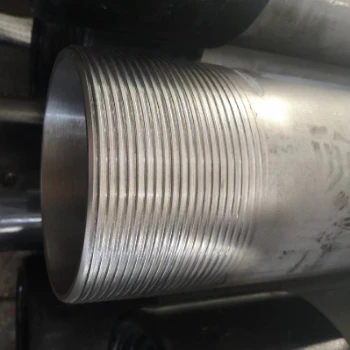- Afrikaans
- Albanian
- Amharic
- Arabic
- Armenian
- Azerbaijani
- Basque
- Belarusian
- Bengali
- Bosnian
- Bulgarian
- Catalan
- Cebuano
- Corsican
- Croatian
- Czech
- Danish
- Dutch
- English
- Esperanto
- Estonian
- Finnish
- French
- Frisian
- Galician
- Georgian
- German
- Greek
- Gujarati
- Haitian Creole
- hausa
- hawaiian
- Hebrew
- Hindi
- Miao
- Hungarian
- Icelandic
- igbo
- Indonesian
- irish
- Italian
- Japanese
- Javanese
- Kannada
- kazakh
- Khmer
- Rwandese
- Korean
- Kurdish
- Kyrgyz
- Lao
- Latin
- Latvian
- Lithuanian
- Luxembourgish
- Macedonian
- Malgashi
- Malay
- Malayalam
- Maltese
- Maori
- Marathi
- Mongolian
- Myanmar
- Nepali
- Norwegian
- Norwegian
- Occitan
- Pashto
- Persian
- Polish
- Portuguese
- Punjabi
- Romanian
- Russian
- Samoan
- Scottish Gaelic
- Serbian
- Sesotho
- Shona
- Sindhi
- Sinhala
- Slovak
- Slovenian
- Somali
- Spanish
- Sundanese
- Swahili
- Swedish
- Tagalog
- Tajik
- Tamil
- Tatar
- Telugu
- Thai
- Turkish
- Turkmen
- Ukrainian
- Urdu
- Uighur
- Uzbek
- Vietnamese
- Welsh
- Bantu
- Yiddish
- Yoruba
- Zulu
Durable Stainless Steel Couplings for Reliable Pipe Connections and Applications
The Essentials of Stainless Steel Couplings A Comprehensive Guide
Stainless steel couplings are vital components widely used in various industries, offering durability, strength, and resistance to corrosion. These couplings are primarily designed to connect two shafts, allowing for the smooth transmission of power between mechanical systems. In this article, we will explore the different types, advantages, and applications of stainless steel couplings.
Understanding Stainless Steel Couplings
A coupling is a device used to connect two shafts together at their ends for the purpose of transmitting power. Stainless steel couplings are particularly popular due to the material's unique properties. Stainless steel is known for its excellent corrosion resistance, strength, and aesthetic appearance. This makes stainless steel couplings ideal for applications in chemical processing, food and beverage, oil and gas, and marine environments, where exposure to harsh substances is common.
Types of Stainless Steel Couplings
Stainless steel couplings come in various designs tailored to meet specific engineering needs
1. Rigid Couplings These couplings do not allow for any misalignment and ensure a solid connection between shafts. They are typically used in applications where alignment is perfect and is crucial for performance.
2. Flexible Couplings These couplings accommodate slight misalignments between shafts. They provide some degree of flexibility, which helps to reduce stress on bearings and other components.
3. Oldham Couplings Designed to accommodate angular and axial misalignment, Oldham couplings consist of three segments—two outer disks and a center disk. This design allows for smoother and more flexible motion.
4. Bellows Couplings Fabricated from thin-walled stainless steel, bellows couplings provide flexibility while minimizing backlash. They are suitable for applications requiring precise motion and minimal wear.
5. Universal Couplings Also known as universal joints, these are designed to transmit rotation between shafts that are not in line with each other. They can accommodate angular misalignments effectively.
Advantages of Stainless Steel Couplings
1. Corrosion Resistance Stainless steel’s resistance to rust and corrosion makes these couplings perfect for applications where they are exposed to moisture or chemicals.
stainless steel coupling

3. Durability The longevity of stainless steel in tough environments ensures that couplings will last, even under demanding conditions.
4. Low Maintenance Stainless steel couplings require minimal maintenance compared to other materials, which can lead to lower operational costs over time.
5. Versatility They can be used in a wide range of applications including automotive, aerospace, marine, and manufacturing sectors due to their ability to perform under various pressures and environments.
Applications of Stainless Steel Couplings
Stainless steel couplings find extensive use across numerous industries
- Automotive In vehicles, these couplings are often used in drive shafts and engine components to ensure reliable performance.
- Pharmaceuticals The cleanability and resistance to corrosion make stainless steel couplings ideal for use in pharmaceutical equipment where hygiene is paramount.
- Food and Beverage Stainless steel couplings are essential in food processing machinery to ensure food safety and maintain high standards of sanitation.
- Oil and Gas In this industry, where equipment is often subject to harsh conditions, stainless steel couplings provide the reliability needed for efficient operations.
Conclusion
In summary, stainless steel couplings are indispensable in the modern manufacturing and processing world. Their unique properties, including corrosion resistance, high strength, and durability, make them suitable for various applications. Understanding the types of couplings available and their advantages allows engineers and designers to make informed decisions, ensuring that machinery operates smoothly and efficiently. As industries continue to evolve, the demand for high-quality components like stainless steel couplings will only continue to rise, cementing their role in future technological advancements.
-
Tubing Pup Joints: Essential Components for Oil and Gas OperationsNewsJul.10,2025
-
Pup Joints: Essential Components for Reliable Drilling OperationsNewsJul.10,2025
-
Pipe Couplings: Connecting Your World EfficientlyNewsJul.10,2025
-
Mastering Oilfield Operations with Quality Tubing and CasingNewsJul.10,2025
-
High-Quality Casing Couplings for Every NeedNewsJul.10,2025
-
Boost Your Drilling Efficiency with Premium Crossover Tools & Seating NipplesNewsJul.10,2025







